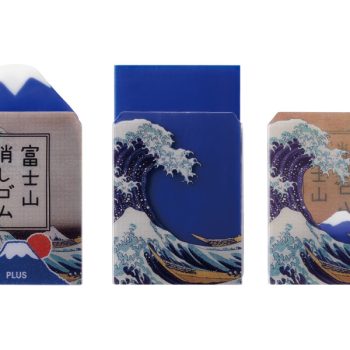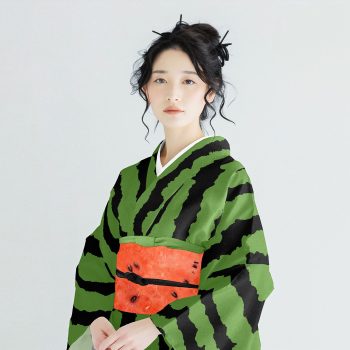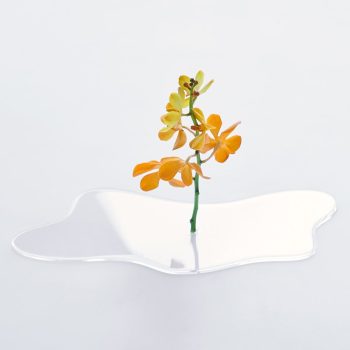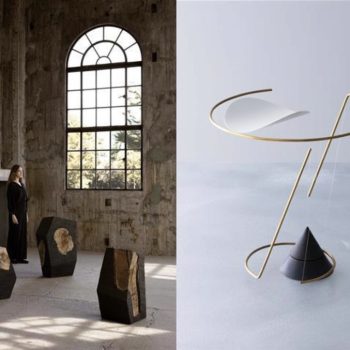
Tatami mats are traditional Japanese flooring made from sewn-together igusa grass. But despite their lovely aroma and natural resistance to mold, their usage has consistently declined as modern consumers opt for more contemporary living choices. The Tatami ReFab Project is an initiative to take discarded tatami mats and reintroduce them into the home by transforming them into a series of contemporary furniture.
advertisement

the process involves pulverizing old tatami mats, combining them with biodegradable plastics and then using that material to 3D-print furniture
The Tatami ReFab Project was spearheaded by Honoka, a group of Japanese product designers focused on researching and utilizing 3D printing and other next-generation manufacturing methods. “The ‘TATAMI ReFAB PROJECT’ is a project that re-embed Tatami into modern life using 3D printing technology,” explains the 6 members who each created their own set of furniture, which ranges from water basin and stool to lighting and flower vases.
The pieces on display at this years 2023 Milano Salone furniture fair from April 18 – 23 at Milan Fairgrounds.

Designed by James Kaoru Bury, Tachiwaki is a self-standing basin in which the body is made of multiple stripes, inspired by the Japanese traditional “Tachiwaki” pattern used in Japanese Kimono.


Designed by Kazuki Fujimura, Ami is a stool and lampshade created by refabricating the Japanese 2D weaving expressions in a 3D form.



Designed by Shinnosuke Harada, Tara is an accent light that resembles bundled igusa grass before it is turned into tatami. The plant-like shape was made by dripping the 3D printed material.


Designed by Shinnosuke Harada and Moritaka Tochigi, Kohshi is a lattice-like vase, reminiscent of Japanese architecture, that allows plants to be inserted at any angle or position like Ikebana


Designed by Ryo Suzuki, Sori and Mukuri are a table and pendant light made from knitted tatami-resin and based on traditional Japanese shapes and textures.


Designed by Moritaka Tochigi, Yocell is a stool designed from the motif of traditional Japanese “Asanoha” pattern. Taking advantage of the 3D printer’s layer marks, unique expressions are created by combining them in different directions.



Designed by Soichi Yokoyama, the Chigusa stool is based on the motif of the traditional Japanese “Sen-suji” pattern and is reminiscent of a chasen matcha whisk.
























